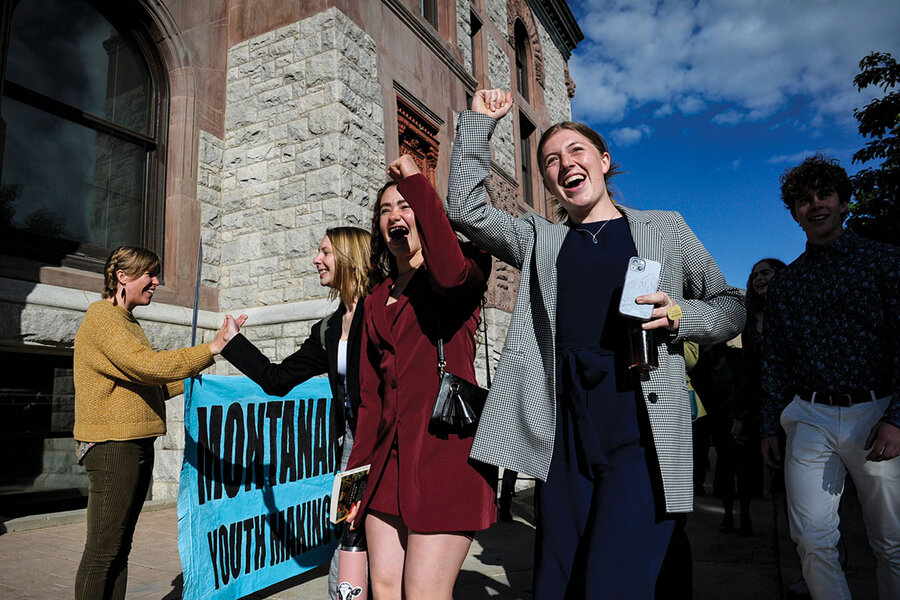Can children really lead the way?
Loading...
This week's cover story, Part 4 in our seven-part series on the Climate Generation, focuses on a groundbreaking legal victory for a set of 16 plaintiffs, ages 5 to 22. These "climate kids," as the popular press has dubbed them, sued their home state of Montana for neglecting their constitutional rights by not factoring climate change into policies around fossil fuel development. Their victory this summer was hailed as a breakthrough moment for climate change action and more broadly for children's rights.
You wouldn't be alone if you read about this case with a certain degree of skepticism. Were children really behind this lawsuit – or their parents?
In its defense, the state argued that the children named in the suit were being used by outside interest groups to grab headlines. After all, when the suit was filed, the youngest plaintiff was just 2 years old.
So when Monitor climate writer Stephanie Hanes set out to report this story, she was particularly interested in exploring just how much agency the young plaintiffs had in the case. What she found was, as you might expect, nuanced.
"Certainly when you’re talking about really little kids, that's a parental choice," she says. "But among the teenagers that I talked to, they were really very independent of their parents."
One teen's choice to join the suit actually put her family in an awkward position within their community, Stephanie says. Her parents support her participation but have declined to give any interviews of their own.
Others plaintiffs have expressed frustration that their involvement could somehow be discounted because of their young age.
Historically speaking, the idea of teens getting involved in political and social actions isn't new. From lunch counter sit-ins in the American South and anti-apartheid uprisings in South Africa to the Velvet Revolution in the former Czechoslovakia and the Arab Spring, young people have long been drivers in movements to spur societal change.
But today's youth activists aren't out to defeat any one foe. What they are advocating for is a global mindset shift in how we all live our lives.
"Everyone has a stake in climate change," says series co-creator Sara Miller Llana. "So these young people see [this potential] to really get the globe engaged in this fight. ... That's really where I see a difference with this struggle than others I've covered."
Members of the Climate Generation are in a stage of life that is all about imagining what kind of adults they want to become. That puts them in a very different position from grown-ups who have built their lives around existing systems. For many of the kids whom Stephanie and Sara met while reporting this series, climate activism is about finding another way to live – and setting an example for others to follow.
"It’s subtler than you might think," Stephanie says. "They are just doing things differently, and not necessarily with a bullhorn or fighting back against the system. They’re just living differently."








